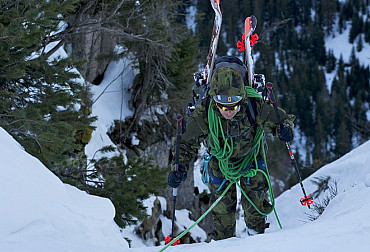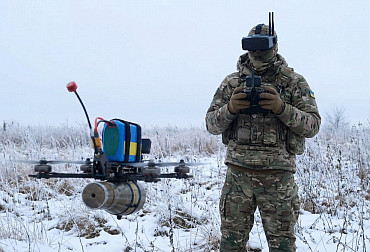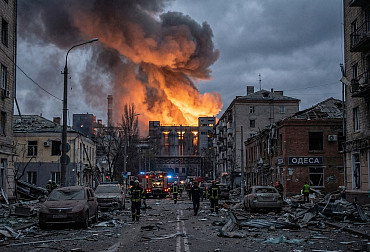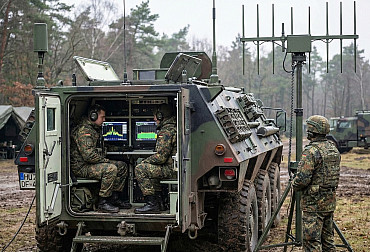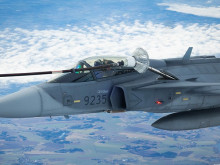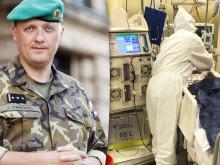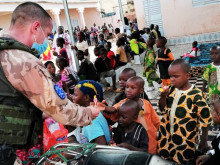Rising Demands on Host Nations in NATO Operations
The demands on the Czech Armed Forces to provide host nation support (HNS) to allied units are increasing due to the growing number of allied troop movements across the Czech Republic. This trend is related to the deteriorating security environment in Europe, the need to effectively strengthen the defense capabilities of NATO's eastern flank, and the overall transformation of our armed forces. The logistical capabilities of the combat support forces formed by the 14th Logistics Support Regiment must therefore be developed in the same way as the combat and combat support capabilities of the Czech Army's Land Forces.
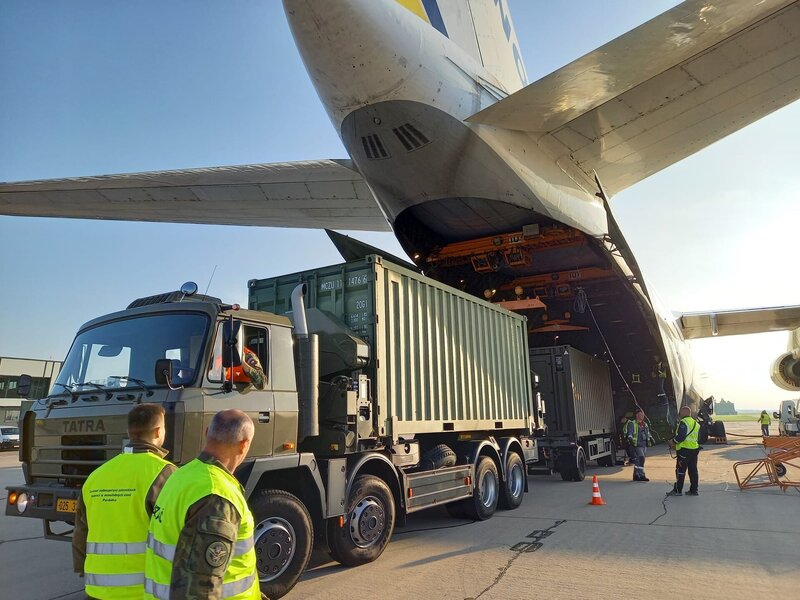
The changed security situation in Europe and the associated renewed focus on national and collective defense also have an impact on the support needed for military projects. Until recently, military units, weapon systems, and ammunition were usually transported by air to distant areas (Iraq, Afghanistan, etc.) as part of foreign missions, while supplies were secured locally. Military transport operations in Europe were exceptional and mostly associated with international exercises, but this has changed fundamentally with Russia's attack on Ukraine and the dramatically increasing need to ensure the defense of the Alliance's eastern flank.
National and collective defense require different numbers and dimensions—in terms of military forces and equipment—and their deployment is visible throughout Central and Eastern Europe. All transport routes to NATO's eastern and southeastern flank naturally pass through Central Europe, which is why one of the Czech Republic's most important obligations towards its allies in the North Atlantic Alliance is to support the troops of allied countries that are stationed on our territory or passing through it. In the event of a threat to NATO's external borders, it must be possible to deploy a huge number of troops, including their weapons, vehicles, and supplies, as quickly as possible, and these troops must be accommodated and provided with food during their movement. Combat support forces are essential for achieving this goal.
According to the definition contained in NATO standard AJP-4.3 (Allied Joint Doctrine for Host-Nation Support), HNS is civilian and military assistance provided in times of peace, crisis, or war by a host nation to the Alliance and/or other NATO forces and organizations located on, operating in, or transiting through the host nation's territory. The importance of Host Nation Support as a key element of logistical support for Alliance force structures is evident from the following principles:
- Responsibility: NATO member states and authorities have joint responsibility for NATO HNS operations.
- Authority: NATO commanders have the authority to establish HNS requirements. MNCs (multinational corps) have the authority to negotiate and conclude HNS agreements on behalf of contributing states, subject to their prior consent.
- Cooperation: States shall, individually or through cooperation arrangements, ensure that formal HNS arrangements include the provision of adequate resources to support their forces assigned to NATO in times of peace, crisis, and conflict.
- Provision: HNS is an essential complement to organic support and will be provided by the host nation to the maximum extent possible, based on national law, national priorities, and the actual capabilities of the host nation.
- Reimbursement: Reimbursement for HNS will be agreed between nations.
- Economy: The planning and implementation of HNS must reflect the most efficient, effective, and economical use of resources available to meet requirements.
- Visibility: Information on HNS arrangements in support of NATO forces must be available to the relevant NATO commander.
The host country's support includes a wide range of services, from entry permits and transport assistance to providing rest areas and protection against sabotage. These services are coordinated by the Logistics Agency, which is a specialized body directly subordinate to the Director of the Logistics Section of the Ministry of Defense for the management of the preparation, organization, and implementation of comprehensive support for the Czech Ministry of Defense in operations within and outside the Czech Republic. The Office of the President of the Republic, the Government, and ministries (in addition to the Ministry of Defense, these include the Ministries of Foreign Affairs, the Interior, Finance, Health, Agriculture, Transport, Justice, Industry and Trade, and the Environment), the State Material Reserves Administration, and the Security Information Service are also involved in the HNS security planning process, in accordance with their respective areas of competence. Host nation support is provided only upon request, as foreign armed forces are not allowed to enter the territory of the Czech Republic without prior authorization. The Czech Armed Forces also use host nation support on the same basis whenever Czech soldiers are deployed in or passing through a NATO member state.
Coordinating host nation support is a complex task that requires close cooperation with state and local authorities. This is particularly true for large-scale deployments of several thousand troops and multinational exercises, where foreign units require comprehensive support. Tailored planning is essential, especially when all modes of transport are used. Military personnel arriving by air and land, weapon systems and supplies transported by ship or rail must be in the right place at the right time – and in the right order – so that units can continue their movement by road without delay.
Host nation support is provided in times of peace, crisis, and war. Transport routes not only lead to the mission area, but also back. Supply routes for reinforcements, weapon systems, ammunition, and supplies to the mission area are the same as those for the return transport of wounded personnel, damaged equipment, and refugees. In an emergency, close coordination between all allied partners is necessary to keep these supply routes operational and sustainable. This is also part of the host nation support and NATO's reinforcement and support network, which is focused on credible deterrence and effective defense.
It is clear from the above outline that the smooth conduct of allied operations depends on the capacity and capabilities of the elements involved in providing Host Nation Support. To this end, sufficient resources and material support must be available.
The modernization of armed forces is a topic that is currently very much in the public eye, and not only in connection with international developments. Attention is logically focused on large and strategic acquisition projects, especially for combat units of the air and ground forces. However, based on the well-known saying that “fighters win battles, but logisticians win wars,” the needs of combat support forces should not be forgotten.
In any case, the gradual modernization of combat support forces in our army is already underway. A key step in this direction was last year's signing of a framework agreement for the purchase of up to 872 Tatra T-815-6×6.7 (flatbed) and T-815-8×8.7 (flatbed and container loader) trucks by 2031. The renewal of the Czech Army's logistics vehicle fleet is one of the key prerequisites for the development of capabilities in the HNS area, which is becoming increasingly important, and only modern equipment can enable the implementation of HNS tasks in accordance with the principles outlined above, primarily economy.











